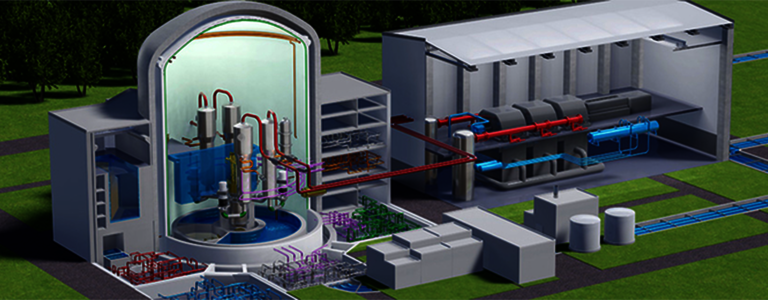 EDF says it is engaged in the authorisation procedures required to build the first two EPR2 reactors at Penly, as well as the administrative procedures for its completion and its link-up to the electricity grid. EDF's target is to start preparatory work mid-2024.
EDF says it is engaged in the authorisation procedures required to build the first two EPR2 reactors at Penly, as well as the administrative procedures for its completion and its link-up to the electricity grid. EDF's target is to start preparatory work mid-2024.
Following the analysis of the results of the public debate which took place between October 2022 and February 2023 organised by the National Commission for Public Debate (CNDP – Commission Nationale du Débat Public), the EDF Board of Directors decided to proceed with the planned construction at Penly.
EDF confirmed the following commitments:
- To carry out an exemplary project, in terms of sustainable development with a socially responsible worksite;
- To fully assume its role alongside local authorities and the State with respect to the Major Project type of procedures to be implemented;
- To inform the general public in a transparent and continuous manner consulting the people of the region throughout the life of the project.
EDF in May 2021 had submitted to the government a proposal for the construction of the new EPR2 reactor programme. The aim is to contribute, alongside renewable energies, to achieving France's targets for decarbonisation of the economy and energy security. EDF plans to build three pairs of EPR2 reactors on sites at Penly, Gravelines (Hauts de France) and in the Auvergne Rhône-Alpes region at Bugey or Tricastin. EDF says this will mobilise 30,000 jobs a year during the construction phase and more than 10,000 during the operating phase.
The Penly NPP currently houses two 1330 MWe class pressurised water reactors. EDF aims to start preparatory work for the new reactors in mid-2024. In February 2022, French President Emmanuel Macron said it was time for a nuclear renaissance in France, adding that operation of all existing reactors should be extended without compromising safety and proposing construction of six new EPR2 reactors, with an option for eight more.
The EPR2 is being developed by EDF and Framatome incorporating design, construction and commissioning experience from the EPR reactor and operating experience from those in service. France’s state audit office has said EDF must ensure the financing and profitability of the EPR2 before starting any construction.
According to the French Nuclear Energy Society, EDF has initiated several administrative procedures related to the project. These include the creation authorisation decree (DAC), which will require three years to review, and environmental authorisation which could take a year. After obtaining environmental authorisation, EDF can begin preparatory work at the site, possibly in mid-2024. This will involve earthworks and reshaping part of a cliff, which could take up to three and a half years. EDF can pour the first concrete for the first reactor after the DAC is granted, probably around 2027. Construction will then take about seven years for commissioning in 2035.
Image: Cutaway of an EPR2 reactor (courtesy of Bilfinger)






